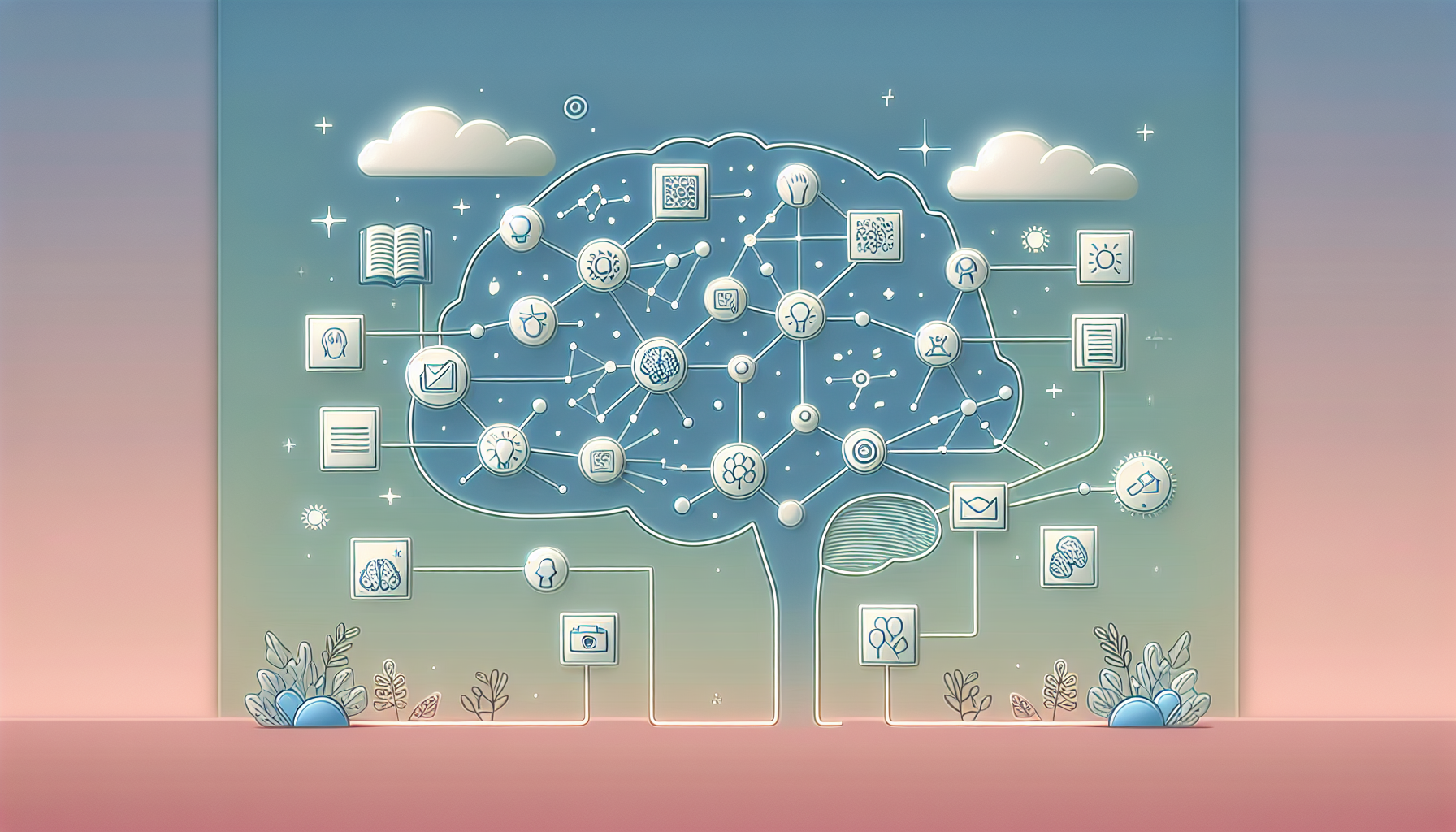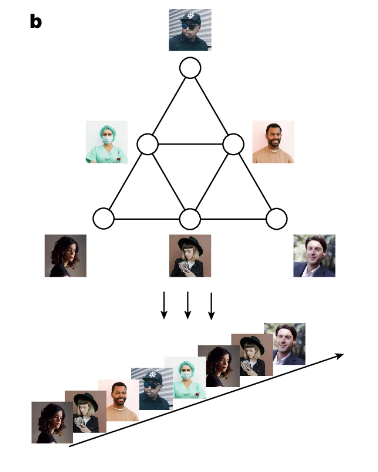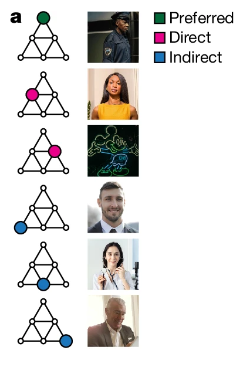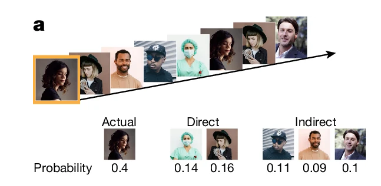 Hardware Tutorial
Hardware Tutorial
 Hardware News
Hardware News
 New research reveals brain memory encoding can improve AI, memory therapies, and learning tools
New research reveals brain memory encoding can improve AI, memory therapies, and learning tools
New research reveals brain memory encoding can improve AI, memory therapies, and learning tools
Sep 27, 2024 am 06:29 AM
A new research paper titled Human hippocampal and entorhinal neurons encode the temporal structure of experience explores how our brains organize memories by identifying patterns over time, even when we’re not consciously aware of them. The study specifically focused on neurons in the hippocampus and entorhinal cortex, two key brain regions involved in memory and learning.
In this study, researchers monitored brain activity in 17 patients who had epilepsy and had intracranial electrodes implanted - tiny devices placed inside the brain to monitor its electrical activity. This allowed scientists to directly observe how neurons behave when people are exposed to patterns or sequences of events. For the sake of thisexperiment, patients were shown around 120 images of people, animals, objects and landmarks over 40 minutes - that too, in a specific order. Researchers analyzed how neurons in the hippocampus (a part of the brain that helps store and retrieve memories) and the entorhinal cortex (a region that communicates with the hippocampus to process both time and space) responded to those images.
One major finding was that neurons slowly yet steadily altered their activity as the patients were exposed to these image patterns, even though the participants were not told about the pattern. The neurons encoded what the images were ("what" information) and in what order they appeared ("when" information). What this did was, it formed a representation of the same sequence/pattern, a process known as encoding temporal sequences—essentially how the brain tracks the order of events over time. Even when the images were later presented in random order, the neurons still remembered the original sequence.



Neuronal replay was another aspect of the same study, where the neurons quickly replayed the same sequence of events during breaks. Happening at a way faster rate, this replay is believed to help the brain consolidate, or integrate, the memory of the sequence. The researchers drew parallels between how the brain encodes space and time, suggesting that similar mechanisms are at work whether one is navigating through space (e.g., walking through a maze or a confined space) or tracking the sequence of events in a timeline.
So what are this research's implications? The brain is the most complex organ in the world, and it will bring us closer to understanding the brain’s ability to organize experiences into predictable patterns. Even without conscious awareness, our neurons are working to make sense of the world, organizing both space and time to help us remember and anticipate future events.
Real-world applications across various fields include education, where these findings could lead to improved learning methods by structuring material in a way that mirrors how the brain naturally processes sequences - in short, better memory retention. In healthcare, the research could guide the development of therapies for memory disorders like Alzheimer's. Artificial intelligence and machine learning systems could benefit from mimicking the brain’s predictive abilities, leading to smarter and more adaptive technologies.
Brain-machine interfaces, similar to the Neuralink, could leverage temporal encoding to aid individuals with neurological impairments. This will allow them to better control prosthetics or communication devices. Last but not least, mental health treatments, particularly for conditions like PTSD, could be stepped up - simply by targeting how traumatic memories are encoded and recalled, giving us new ways to manage intrusive thoughts.
The above is the detailed content of New research reveals brain memory encoding can improve AI, memory therapies, and learning tools. For more information, please follow other related articles on the PHP Chinese website!

Hot AI Tools

Undress AI Tool
Undress images for free

Undresser.AI Undress
AI-powered app for creating realistic nude photos

AI Clothes Remover
Online AI tool for removing clothes from photos.

Clothoff.io
AI clothes remover

Video Face Swap
Swap faces in any video effortlessly with our completely free AI face swap tool!

Hot Article

Hot Tools

Notepad++7.3.1
Easy-to-use and free code editor

SublimeText3 Chinese version
Chinese version, very easy to use

Zend Studio 13.0.1
Powerful PHP integrated development environment

Dreamweaver CS6
Visual web development tools

SublimeText3 Mac version
God-level code editing software (SublimeText3)

Hot Topics
 The popularity of the currency circle has returned, why do smart people have begun to quietly increase their positions? Look at the trend from the on-chain data and grasp the next round of wealth password!
Jul 09, 2025 pm 08:30 PM
The popularity of the currency circle has returned, why do smart people have begun to quietly increase their positions? Look at the trend from the on-chain data and grasp the next round of wealth password!
Jul 09, 2025 pm 08:30 PM
As the market conditions pick up, more and more smart investors have begun to quietly increase their positions in the currency circle. Many people are wondering what makes them take decisively when most people wait and see? This article will analyze current trends through on-chain data to help readers understand the logic of smart funds, so as to better grasp the next round of potential wealth growth opportunities.
 What are the mainstream public chains of cryptocurrencies? The top ten rankings of cryptocurrency mainstream public chains in 2025
Jul 10, 2025 pm 08:21 PM
What are the mainstream public chains of cryptocurrencies? The top ten rankings of cryptocurrency mainstream public chains in 2025
Jul 10, 2025 pm 08:21 PM
The pattern in the public chain field shows a trend of "one super, many strong ones, and a hundred flowers blooming". Ethereum is still leading with its ecological moat, while Solana, Avalanche and others are challenging performance. Meanwhile, Polkadot, Cosmos, which focuses on interoperability, and Chainlink, which is a critical infrastructure, form a future picture of multiple chains coexisting. For users and developers, choosing which platform is no longer a single choice, but requires a trade-off between performance, cost, security and ecological maturity based on specific needs.
 Cardano's smart contract evolution: The impact of Alonzo upgrades on 2025
Jul 10, 2025 pm 07:36 PM
Cardano's smart contract evolution: The impact of Alonzo upgrades on 2025
Jul 10, 2025 pm 07:36 PM
Cardano's Alonzo hard fork upgrade has successfully transformed Cardano from a value transfer network to a fully functional smart contract platform by introducing the Plutus smart contract platform. 1. Plutus is based on Haskell language, with powerful functionality, enhanced security and predictable cost model; 2. After the upgrade, dApps deployment is accelerated, the developer community is expanded, and the DeFi and NFT ecosystems are developing rapidly; 3. Looking ahead to 2025, the Cardano ecosystem will be more mature and diverse. Combined with the improvement of scalability in the Basho era, the enhancement of cross-chain interoperability, the evolution of decentralized governance in the Voltaire era, and the promotion of mainstream adoption by enterprise-level applications, Cardano has
 Bitcoin breaks new highs, Dogecoin rebounds strongly, will Ethereum keep up with the pace
Jul 09, 2025 pm 08:24 PM
Bitcoin breaks new highs, Dogecoin rebounds strongly, will Ethereum keep up with the pace
Jul 09, 2025 pm 08:24 PM
Recently, Bitcoin hit a new high, Dogecoin ushered in a strong rebound and the market was hot. Next, we will analyze the market drivers and technical aspects to determine whether Ethereum still has opportunities to follow the rise.
 The top 5 most worth investing in 2025 (with latest data)
Jul 09, 2025 am 06:06 AM
The top 5 most worth investing in 2025 (with latest data)
Jul 09, 2025 am 06:06 AM
The five most valuable stablecoins in 2025 are Tether (USDT), USD Coin (USDC), Dai (DAI), First Digital USD (FDUSD) and TrueUSD (TUSD).
 Who issues stablecoins? What are the stablecoins?
Jul 09, 2025 pm 06:24 PM
Who issues stablecoins? What are the stablecoins?
Jul 09, 2025 pm 06:24 PM
Stablecoins are crypto assets that maintain price stability by anchoring fiat currencies such as the US dollar. They are mainly divided into three categories: fiat currency collateral, crypto asset collateral and algorithmic stablecoins. 1. USDT is issued by Tether and is the stablecoin with the largest market value and the highest liquidity. 2. USDC is released by the Centre alliance launched by Circle and Coinbase, and is known for its transparency and compliance. 3. DAI is generated by MakerDAO through over-collateralization of crypto assets and is the core currency in the DeFi field. 4. BUSD was launched in partnership with Paxos, and is regulated by the United States but has been discontinued. 5. TUSD achieves high transparency reserve verification through third-party escrow accounts. Users can use centralized exchanges such as Binance, Ouyi, and Huobi
 The flow of funds on the chain is exposed: What new tokens are being bet on by Clever Money?
Jul 16, 2025 am 10:15 AM
The flow of funds on the chain is exposed: What new tokens are being bet on by Clever Money?
Jul 16, 2025 am 10:15 AM
Ordinary investors can discover potential tokens by tracking "smart money", which are high-profit addresses, and paying attention to their trends can provide leading indicators. 1. Use tools such as Nansen and Arkham Intelligence to analyze the data on the chain to view the buying and holdings of smart money; 2. Use Dune Analytics to obtain community-created dashboards to monitor the flow of funds; 3. Follow platforms such as Lookonchain to obtain real-time intelligence. Recently, Cangming Money is planning to re-polize LRT track, DePIN project, modular ecosystem and RWA protocol. For example, a certain LRT protocol has obtained a large amount of early deposits, a certain DePIN project has been accumulated continuously, a certain game public chain has been supported by the industry treasury, and a certain RWA protocol has attracted institutions to enter.
 What are the mainstream cryptocurrencies in the world? In-depth analysis of cryptocurrency in 2025 (including website)
Jul 10, 2025 pm 08:36 PM
What are the mainstream cryptocurrencies in the world? In-depth analysis of cryptocurrency in 2025 (including website)
Jul 10, 2025 pm 08:36 PM
At a time when the digital economy wave swept the world, cryptocurrencies have become the focus of attention from all walks of life with their unique decentralization and transparency. From the initial geek niche experiment to the current financial landscape with a market value of trillions, the evolution of cryptocurrencies is amazing. It not only brings innovations in underlying technologies, but also gives birth to countless innovative applications, which are profoundly affecting all aspects of finance, technology and even social governance.





